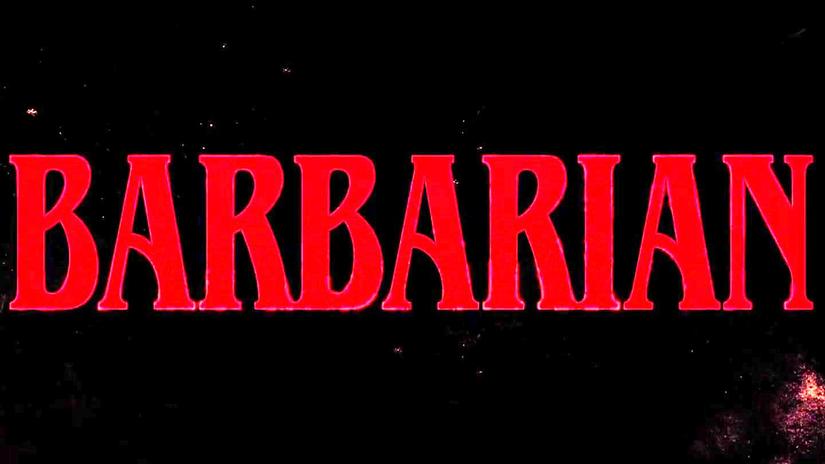The term “barbarian” originally means someone who does not speak the dominant language intelligibly, often a foreigner outside Greek or Roman culture. It derives from the Greek word barbaros, which referred to non-Greek speakers. Over time, the word’s meaning broadened and took on cultural and political implications, especially in ancient Rome and Greece.

In ancient Greece, “barbaros” was used to describe those who did not speak Greek. Greeks believed foreign languages sounded like an unintelligible “bar-bar” noise, echoing the onomatopoeic origin of the word. After the Persian Wars, the term acquired negative connotations such as “stupid,” “uncultivated,” and “brutal.” Romans adopted this usage, applying it mainly to Germanic and Gaulish tribes threatening the empire.
During Augustus’ reign and beyond, Romans used “barbarian” as a broad label for groups threatening Roman order, most often Germanic or Gaulish peoples. Earlier, the term emphasized linguistic and cultural difference rather than hostility.

| Aspect | Explanation |
|---|---|
| Ancient Greek | Non-Greek speakers; unintelligible speech sounds like “barbar.” |
| Ancient Roman | Non-Roman speakers; mainly groups opposing the empire. |
| Negative connotations | Stupid, uncultivated, hostile foreigner. |
| Etymology | Likely from a Proto-Indo-European root meaning “stammer” or “stutter.” |
Some Roman authors misattributed the word’s origin to Latin words like barba (beard) and rus (countryside), but linguists reject these explanations. Modern studies find cognates in Sanskrit (barbara meaning “stuttering”) and related Indo-European languages, pointing to a root linked with inarticulate speech. Words like English “babble” and Latin balbus (“stammerer”) share this root.
The cultural weight of “barbarian” arises from the connection between linguistic difference and perceived otherness or threat. To ancient societies, foreign languages symbolized uncivilized or hostile outsiders. Thus, “barbarian” blends linguistic, cultural, and political meanings.

- Originally denotes non-Greek/non-Latin speakers whose language sounds unintelligible.
- Develops negative cultural stereotypes: uncivilized, hostile, or stupid foreigner.
- Romans use the term broadly for groups threatening empire security, especially Germans and Gauls.
- Root traced to Proto-Indo-European terms related to stammering or unintelligible speech.
- Pejorative today but historically complex, linking language, identity, and power.
For more detailed linguistic information, resources like the Perseus Greek Lexicon and the Perseus Latin Lexicon provide full lexical entries and usage examples.
What does “Barbarian” actually mean?

In essence, “barbarian” means someone who doesn’t speak my language or belong to my culture—often implying they’re unintelligible or uncivilized. But there’s a whole backstory behind that quick and blunt judgment, filled with quirks, language twists, and cultural clashes. Let’s unpack the real meaning of this loaded word—because it’s more than just a fancy insult from ancient times.
Imagine you’re an ancient Greek. Suddenly, you encounter someone whose words sound like gibberish to your ears—like “bar-bar-bar.” To you, it might as well be the sound of barking dogs. This precious little idea is the spark that ignited the term barbaros in Greek, literally meaning “non-Greek speaker.”

It’s language comedy and exclusion wrapped in one word. When the Romans borrowed it, they tweaked the meaning a bit, making “barbarian” a catch-all phrase for outsiders, usually those pesky Germanic or Gaulish tribes who threatened the Roman Empire from the edges.
A quick history lesson before we dive deeper
Before Emperor Augustus rebranded “barbarian” as a political term for external threats (so basically a code word for “the usual suspects” like Germans and Gauls), it was used simply for anyone who didn’t speak Latin or Greek natively. That could be someone living next door or across the empire. The Romans, with their vast empire, were swimming in variety, and language was an easy way to draw the “us vs. them” line.
So, the word “barbarian” carried cultural weight beyond just language: it meant someone “outside” the dominant Roman-Greek civilization, someone a bit *alien* and potentially hostile.
Not just foreign—also crude (or so they thought)
Have you ever hung out with people who just don’t get your jokes? For the Greeks, foreigners weren’t just unknown; after clashes like the Persian War, the term started carrying nasty connotations. “Barbarian” morphed into “stupid,” “uncultured,” “brutal”—a not-so-nice way to describe “otherness.”
Romans eagerly took this pejorative tone and ran with it. They connected foreigners with enemies, so the idea that a “barbarian” was someone wild, dangerous, or uncivilized became standard. This stuck around and bled into how English speakers use the term even today.
Where did the word truly come from? Enter etymology
Ever heard that barbarians got their name because they had big beards (barba) or lived in the countryside (rus)? Nice theory, but nope. Roman scholars in late antiquity came up with those creative—but wrong—folk tales trying to explain the word.
The true roots go much deeper and more interestingly back in time. The Greek “barbaros” is widely considered onomatopoeic, imitating the sound of incomprehensible chatter—think “bar-bar-bar.” It’s like calling someone a babbler because their speech didn’t make sense.
Taking a global linguistic perspective, there’s a Sanskrit cousin word, barbara, meaning “stuttering” or “tongue-tied,” extending to mean “stupid.” This cousinhood gets juicy: the English word “babble” and Latin “balbus” (meaning “inarticulate”) share the same ancient family tree. All of these stem from a Proto-Indo-European root (PIE) theorized as *balb-* or *balbal-* meaning “to stammer.”
So, it’s not just a random insult. “Barbarian” literally labeled people as those who stutter or babble—basically, anyone whose language didn’t flow into the familiar tune.
The big picture: What does “barbarian” reveal about culture and language?
At its core, “barbarian” means “someone unintelligible,” a linguistic outsider. But this simple fact dressed itself up with centuries of prejudice, cultural arrogance, and political fear. Being foreign often meant being dangerous or inferior in the eyes of Greeks and Romans.
This label tells us more about human nature than ancient history. We tend to paint “others” as less civilized or less intelligent when we don’t understand them. It’s a timeless habit, seen in this word’s evolution.
In modern times, “barbarian” can still carry negative connotations, whether describing rude behavior or suggesting someone as uncultured. Yet, digging into its origins reminds us to question rash judgments and see the humanity behind “foreignness.”
Personal takeaway: Using “barbarian” thoughtfully
Next time you hear or say “barbarian,” pause to think—are you describing someone’s culture, language, or behavior, or just labeling them because they seem different? Words carry the weight of histories and biases.
Why not reclaim “barbarian” with humor and curiosity? After all, everyone sounds like a “barbarian” in a foreign tongue. And maybe the real lesson is: language is a bridge, not a wall.
Resources for the curious reader
Understanding a word means understanding people—past and present. So, the next time someone calls a group “barbarians,” remember this rich tapestry of language and culture behind that single, loaded word.




